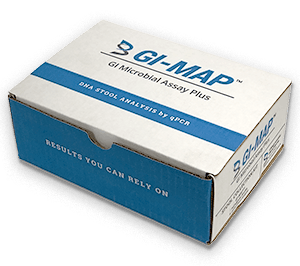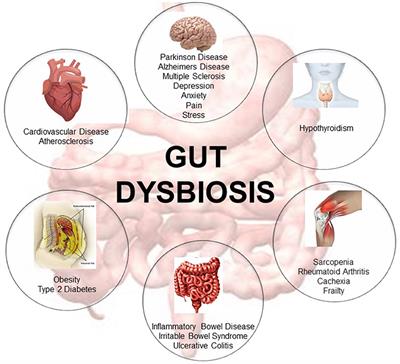What is the GI-Map Test?

The Gi Microbial Assay Plus (Gi-Map) test is a DNA-based stool test that provides a highly detailed analysis of one’s gut microbiome. This test analyzes levels of both good and bad bacteria, viruses, parasites, worms, fungi, as well as immune and digestive markers in your gut.
The Gi-map test is an FDA approved test that can be done in the comfort of the patient’s home. It identifies what microbes are in a patient stool sample, and in what quantities.
This test allows practitioners to spot problems in a patient’s gut flora with this test.
For example, certain organisms like Candida can be common in healthy individuals. When in excess, Candida can cause health problems and gut dysbiosis. Candida in particular can cause many chronic issues, such as lethargy, rashes, joint pains, constipation, fatigue and diarrhea, among others.
The GI-MAP also determines non-microbial factors
It measures levels of certain immune systems and digestive proteins which are considered to be great signs of digestive function and optimal gastrointestinal health. When we see too much or too little of these proteins it can be a sign of a range of gut issues, such as Inflammatory Bowel Disease or Leaky Gut Syndrome. Leaky Gut Syndrome is an especially important part of the test, as it is common but poorly understood by modern medicine. It is a problem with the lining of the intestines which lets germs and undigested food into the bloodstream and can cause bloating, gas, cramps, and food sensitivities.
The GI-map allows practitioners to tailor a program that will help restore balance to the gut microbiome to improve digestion, immunity and mood
The results allow practitioners to pinpoint imbalances and root causes which in turn provides you with actual answers on what can be done to address unwanted issues This test is frequently used when my patients have seen a GI doc who has ruled out more severe diseases & they’re told they have IBS or another functional GI problem.
The GI-MAP test is an incredible tool to help us dive a bit deeper and investigate a root cause for the symptoms the patient is facing. I tell my patients the results provide a brief “snapshot” in time as our gut microbiome is always changing. That said, the snapshot is helpful because we can identify trends over time to see if any problematic pathogens are wreaking havoc to the gut microbiome. Once the test is completed, it provides the Registered Dietitian and patient a five page report that takes you on a journey through their digestive system.
Take a look below to review a few of the markers the GI-Map test reveals with its results:
-
- PATHOGENS (bacterial, viral and parasitic)
- COMMENSAL BACTERIA (the “good” or beneficial bacteria)
- OPPORTUNISTIC BACTERIA (the “unfavorable” microbes that have potential to cause problems)
- FUNGI & YEAST DIGESTIVE FUNCTION
- IMMUNE FUNCTION OF THE GUT INFLAMMATORY MARKERS
The results can help provide insight around what supplements and lifestyle modifications will be supportive on the patient’s gut healing journey.
I find that patients feel more empowered in making nutrition & lifestyle changes when they have evidence as to the reasons WHY these changes will benefit them.
For example, many times we find low amounts of beneficial bacteria and poor immunity in a client’s gut results & through educating them on how this impacts their digestive health, they’re more motivated to diversify their eating patterns and make additional changes.
About the author:

Tirzah Thompson is passionate about helping women (and men) find the best version of themselves through building a healthy relationship with food and finding the root cause of their health issues through functional Nutrition. She knows what it’s like to feel frustrated with your health and how you think.
Tirzah graduated from the University Of Cincinnati’s Dietetic Coordinated program in May 2019. She then went on to get her Master’s degree and completed that in December 2020. She has a Master’s in Nutrition & is working on her Intuitive Eating Counselor certification. She has been practicing for two years as a Registered Dietitian.
She has seen how short and long-term periods of dieting negatively affect our hormones, metabolism, gut health, and relationship with food. She’s determined to help you make peace with food and your body to find a nutrition approach that works best for you.
Her mission is to advance the quality of one’s health through building a healthy relationship with food and emphasizing a healthy gut and hormonal balance. She’s passionate about helping individuals end the stress and cycle of dieting and disorder to reclaim a healthy relationship with food and their bodies.

